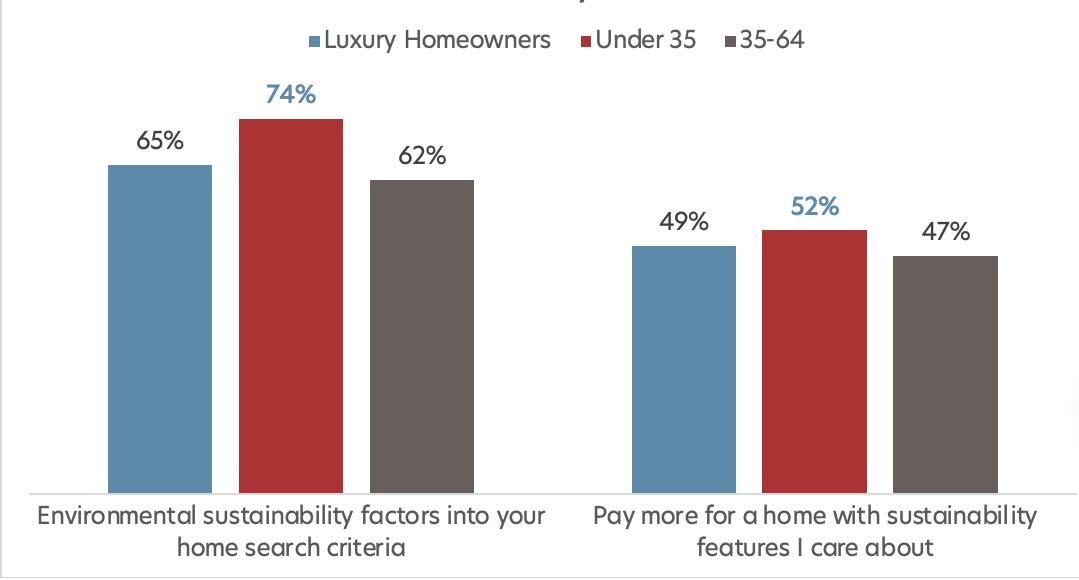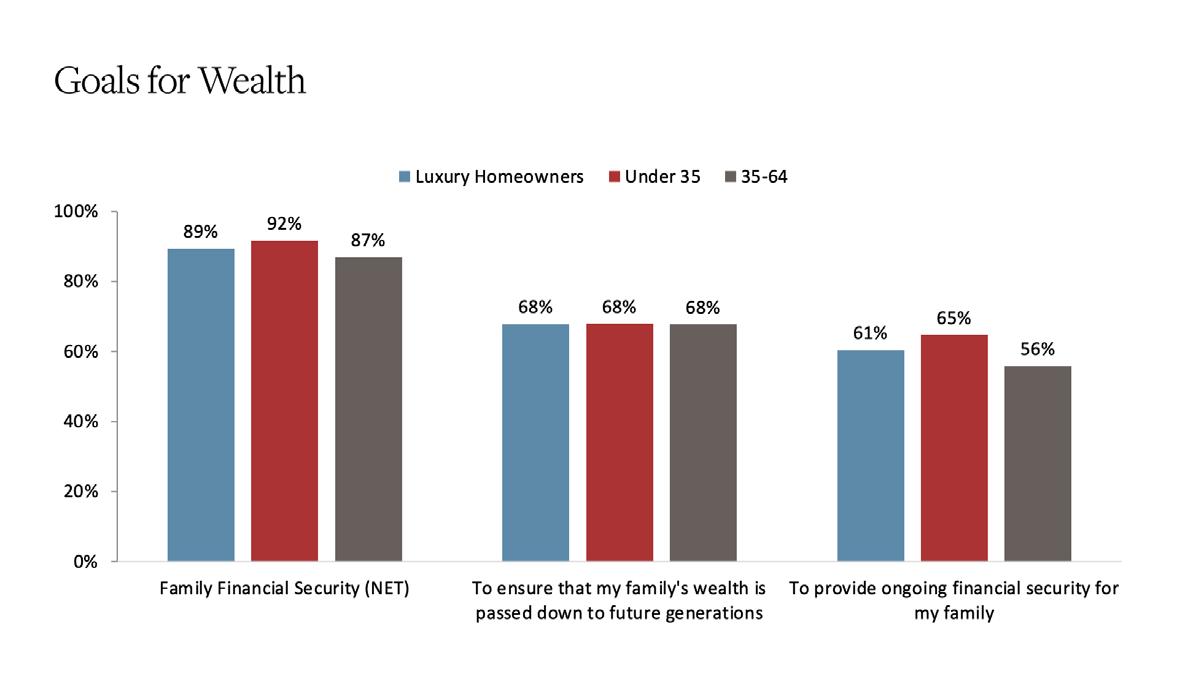
2 minute read
PROMINENT LIFESTYLE TRENDS: Eco-Luxury and Legacy Values Emerge
A fusion of exclusivity, social responsibility and intergenerational wealth preservation
The luxury market has always fascinated people with its opulence, exclusivity and originality. Luxury Portfolio’s new data on the preferences of luxury homeowners reveals a shift toward embracing sustainable practices and focusing on wealth preservation for future generations.
While daily-living practices are similar by age groups, with 85% using reusable bags while shopping and reusable mugs and water bottles almost every time, the younger demographic is more intent on making lasting changes in the home. Luxury homeowners under 35 show an increased affinity for socially responsible practices in the home itself compared to their middle-aged counterparts.
As sustainability gains more prominence in luxury lifestyles, brands are striving to align with these values.
For example, Stella McCartney, a pioneer of sustainable high fashion, underscores the importance of combining luxury and eco-friendliness in her designs.
Sustainability at Home
Stella McCartney is a trailblazer in sustainable high fashion, showcasing that luxury and eco-friendliness can coexist.
Ms. McCartney’s “Green Carpet Collection” in 2012 featured elegant garments made from sustainable materials and she ensures ethical production and labor practices.
Incorporating technology and innovative design, she created a luxurious and environmentally responsible brand, inspiring others in the industry to adopt sustainable practices.
We are witnessing a significant shift in luxury homeowners’ preferences, particularly among the younger generation. They expect the brands they patronize to be socially responsible and environmentally conscious.
Apart from sustainable living, younger luxury homeowners also display strong interest in home automation systems.
Smart home appliances are favored by 51% in this age group, compared to 50% in the 35-64 category. Integrated music systems are preferred by 45% of under-35s, significantly higher than the 34% of the middle-aged segment.
Luxury homeowners have increasingly high expectations when it comes to home service providers.
Demand for personal and household services rises significantly higher with age, as the 35-64 age group balances many competing time constraints. Specifically, personal assistants become even more important over time for the 35-64 age group (56%) compared with the under-35s (43%).
This rise in demand for personalized, luxury home services is being met by skilled individuals and brands such as Quintessentially, which offers tailor-made lifestyle management and concierge services to affluent clients.
Understanding the aspirations and goals of luxury homeowners is crucial for brands seeking to tap into this lucrative market.
A striking 92% of under-35s prioritize family financial security and continuity, compared to 87% in the middle-aged segment.

Younger homeowners also emphasize business legacy and value preservation (59%) over philanthropy and social impact (53%).
Luxury homeowners now seek a balance between preserving their wealth and ensuring the well-being of their families.
This mindset has broad implications for how luxury brands need to communicate with their audience.
One such brand addressing this desire for legacy preservation is Patek Philippe, a renowned Swiss watchmaker known for its tagline: “You never actually own a Patek Philippe. You merely look after it for the next generation.” The watch brand’s message resonates strongly with luxury homeowners who value intergenerational wealth preservation.
In an age where luxury lifestyles are evolving and embracing sustainability, brands and service providers must adapt to meet the expectations of their discerning clientele.
By offering products and services that blend exclusivity, social responsibility and legacy values, the luxury industry can continue to captivate and inspire generations to come.
Key Takeaways
Young affluent individuals prioritize eco-friendliness and sustainability
These consumers prefer reusable items such as bags and water bottles
Luxury brands are adapting to offer eco-friendly products for these buyers
Young affluent consumers enjoy smart gadgets for convenience in their homes
As they age, luxury homeowners seek assistance for busy lives by hiring personal assistants
Family wealth and preserving businesses for future generations are important values
Luxury brands emphasize the heirloom quality of their products
For continued interest, luxury companies must offer unique, environmentally friendly and heritage-worthy items














